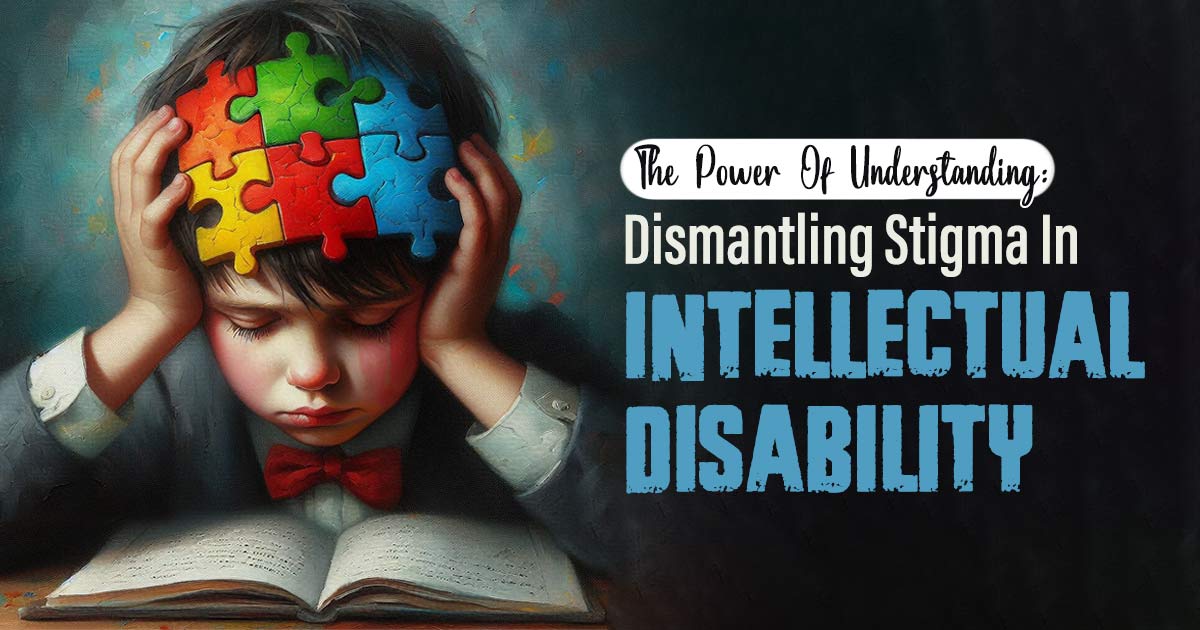Intellectual disability is a mental health condition that rarely gets recognized and is frequently misdiagnosed. It is also frequently mistaken as learning disability and this lax in diagnosis and treatment can have major consequences for an affected individual in the long run.
What Is Intellectual Disability?
Intellectual disability involves a series of neuro-developmental conditions marked by limited intellectual functioning and poor adaptive behavior. These limitations are often observed on the onset of developmental periods and therefore affect the overall growth and socialization abilities of affected individuals.
Cognition, communication, self-care, and daily life activities are some of the areas affected by intellectual disability. The severity differs from one person to another; it can be mild or profound, but would need long-lasting help for optimum performance.
How Is Intellectual Disability Different From Learning Disability?
Intellectual disability and learning disability are both related to cognitive functioning, but these differ in scope and impact. Intellectual disability involves broader limitations in intellectual and adaptive functioning which affect various aspects of daily life.
Contrarily, learning disabilities primarily pertain to difficulties in acquiring and using specific academic skills. Moreover, while intellectual disability involves a global impairment affecting multiple domains, learning disabilities are more specific, impacting skills such as reading, writing, or mathematics.
How Is Intellectual Disability Stigmatized?
In spite of the development of knowledge and advocacy, people with intellectual disability continue to be stigmatized, often based on misconceptions and societal prejudices. Some signs and manifestations of such stigma that leads to challenges with intellectual disabilities include:
1. Language And Labels
Demeaning language and negative labels uphold stigmatization. Words like “retard” or “mentally challenged” do not only show ignorance but also perpetuate dangerous stereotypes. Language is an important tool for shaping mindsets and using these derogatory words further marginalizes intellectually disabled persons.
2. Social Exclusion
Stigma surrounding intellectual disability often results in social exclusion, which makes it difficult for someone to make meaningful connections. Prejudiced attitudes can disrupt social interactions which will prevent the sufferers from availing impactful opportunities as well as building supportive relationships.
3. Limited Educational Opportunities
Stereotypes about individuals with intellectual disability curtail their chances to access education. As a result, they may fail to avail appropriate resources and support needed for learning and personal growth.
4. Employment Discrimination
Stigma affects job prospects for the intellectually disabled who are discriminated against during hiring and promotion. Missed employment opportunities resulting from baseless assumptions regarding their potential can hinder them from attaining economic independence.
5. Media Representation
Media has an impact on how societies perceive people with intellectual disability. Failure by the media to represent or misrepresentation of persons with intellectual disability reinforces stereotypes, which further contribute towards this problem. Thus, accurate depiction that is positive and realistic is vital to question these deeply rooted biases.
6. Lack Of Accessibility
Physical and societal barriers limit accessibility for individuals with intellectual disabilities. For example, public spaces, transport systems or general information might not be accessible enough, hindering their participation in community life.
7. Assumptions About Independence
Society’s negative assumption about self-reliance is a form of prejudice about people suffering from this disorder, since it underestimates its victims’ abilities. It is important to identify and value the unique talents and development potential of this population in order to do away with these misconceptions.
8. Family Stigma
Lastly, families of people having intellectual disabilities may be stigmatized, thus adding an extra burden to the ostracization of the disabled. Societal judgments and fear of discrimination isolate them from supportive communities that could help both the individual and their family members develop.
Addressing The Stigma Around Intellectual Disability
Stigma concerning intellectual disability must be tackled as a matter of great urgency by society at large. Myths surrounding intellectual disability can be debunked, understanding encouraged, and inclusivity promoted through educational endeavors and awareness campaigns.
If we all champion accessible initiatives, challenge stereotypes through accurate media portrayal, and promote good language use then we will create an environment where people with intellectual disabilities can flourish due to their unique strengths and talents. Furthermore, empowering individuals and families through education, ensuring workplace equality, and strengthening legal protections against discrimination are some of the vital ways towards making a more caring society that accommodates everyone irrespective of their mental abilities.










